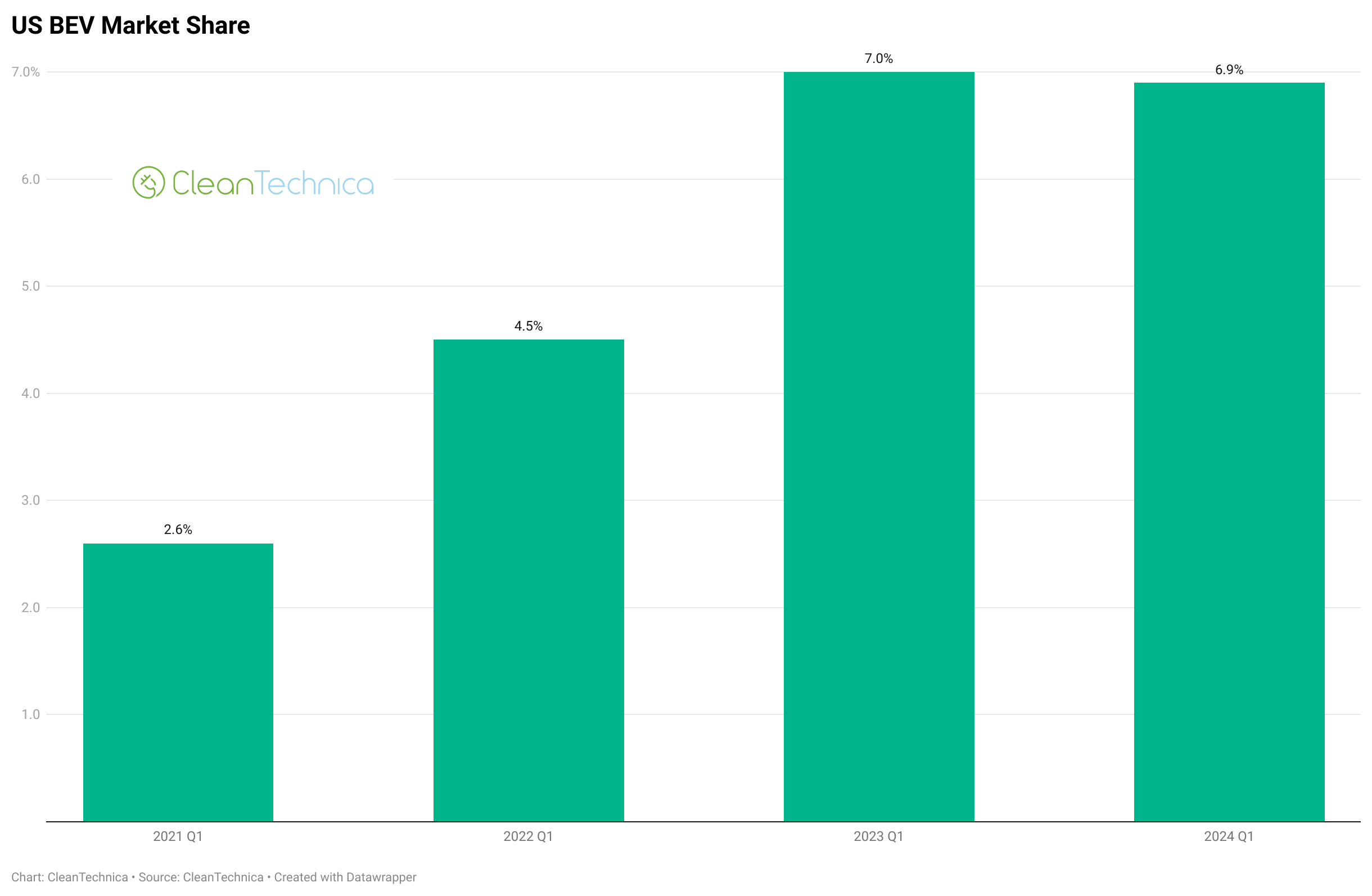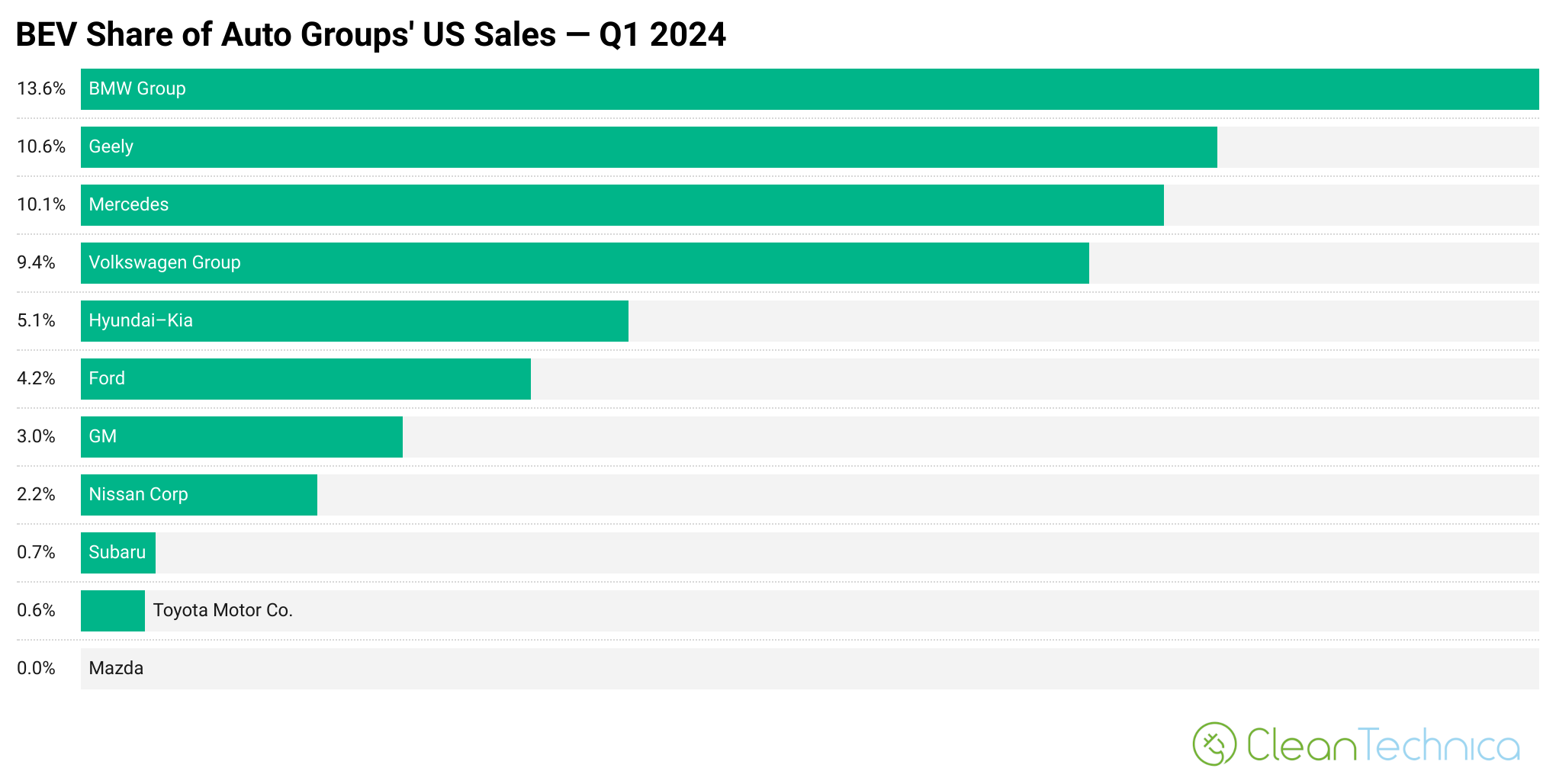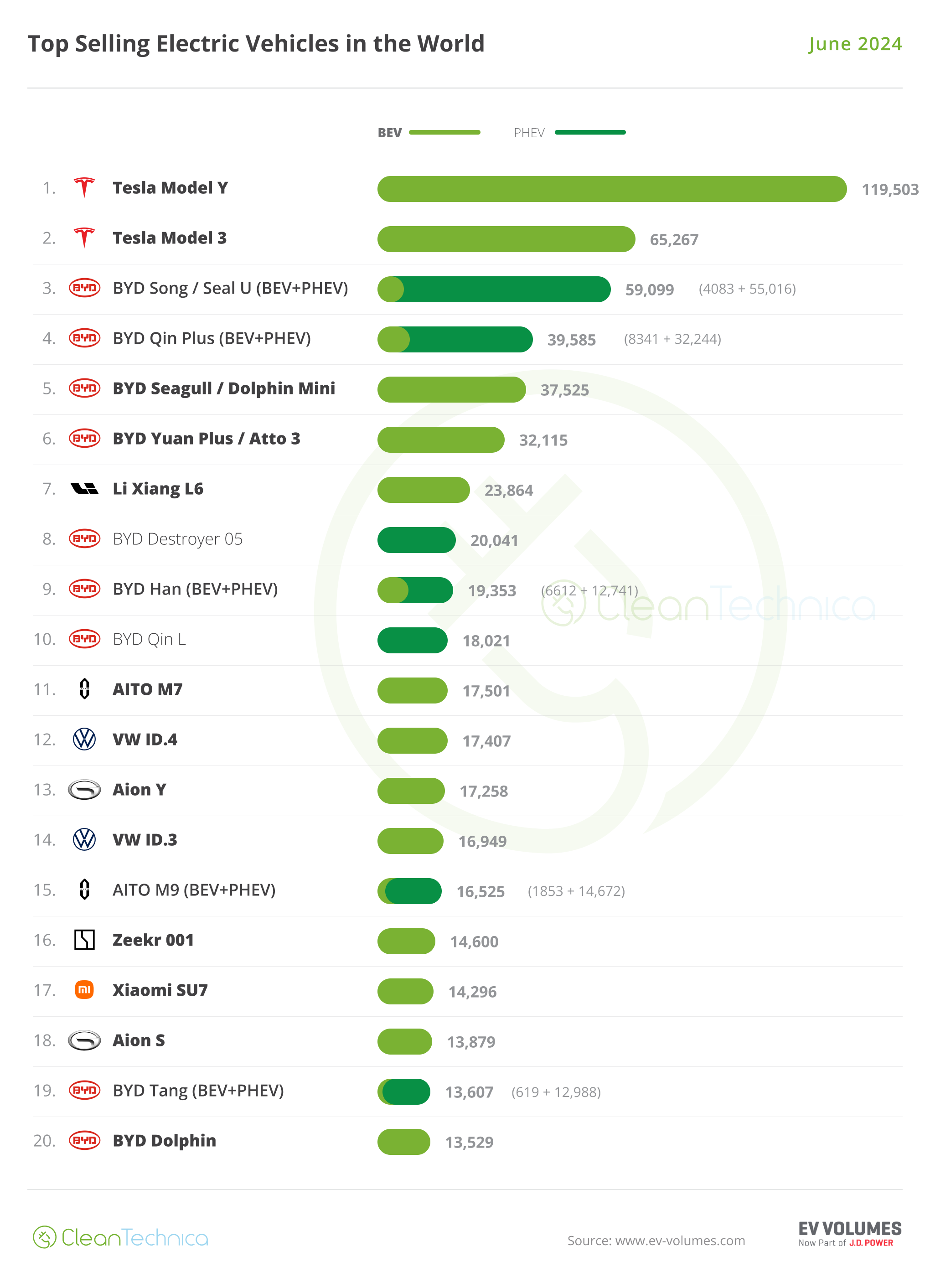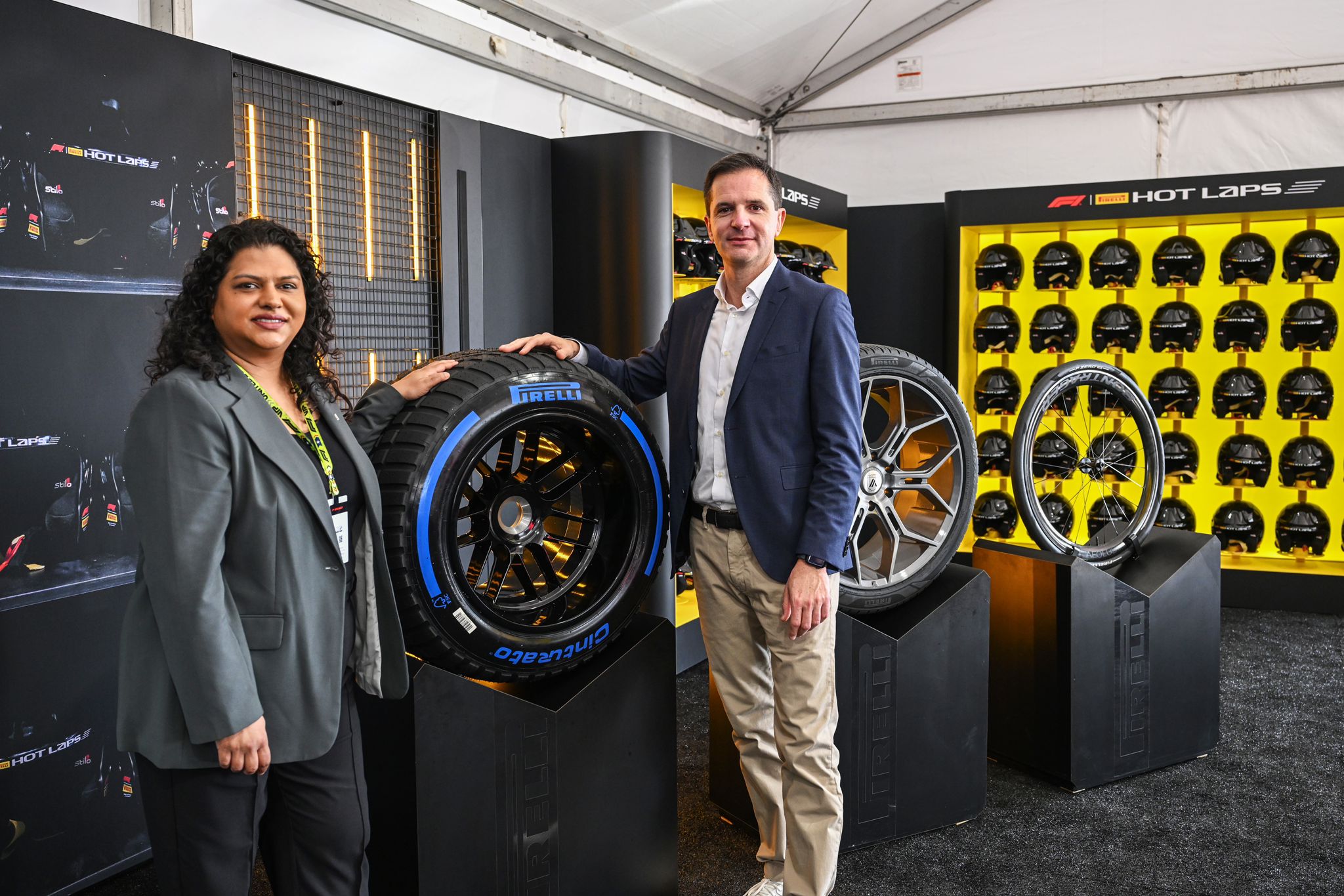Sign up for daily news updates from CleanTechnica on email. Or follow us on Google News!
Overall, the pure electric vehicle (EV, or BEV) share of US auto sales was 6.9% in the first quarter of 2024. EV sales increased slightly compared to the first quarter of 2023, but overall auto sales increased more, so EV market share dropped from 7% to 6.9% year over year. It was also down from the 4th quarter, which had a record high 7.9% EV market share. Still, it was up from 4.5% in Q1 2022, 2.4% in Q1 2021, 1.4% in Q1 2020, and 1% in Q1 2019. Was this just a slight dip in EV market share growth? Or was it the beginning of a downward trend, or at least a leveling off? Given all of the benefits of electric cars, their ongoing cost reductions, and growing model variety, I assume this was a temporary and uncharacteristic drop in EV market share.
With Tesla accounting for more than half of US EV sales, the big hit in the first quarter was simply Tesla’s drop in sales — quarter over quarter as well as year over year. Year over year, non-Tesla EV sales were up 21,792 in the first quarter. However, they were down by almost 20,000 units quarter over quarter.
Digging down a bit deeper, let’s look at how different automakers and different auto brands performed in terms of the share of their own sales that were EV sales. (Note that several auto brands don’t sell EVs in the US and thus aren’t even included here.)
Looking first at auto groups, we can see that BMW Group became the #1 auto group in the nation for the share of its sales that were electric, at 13.6% share. In second was Geely, which was at 10.6% share, and then another big German luxury automaker, Mercedes, came in third with 10.1% share. And then you’ve got the third of the big German auto groups, Volkswagen Group, scoring 9.4% share. So, three of the top four auto companies were the German Big 3.
Getting to mass-market brands, the Hyundai–Kia collab had 5.1% share, a bit more than Ford Motor Company’s 4.2% share. GM was down at 3%, Nissan at 2.2%, and Toyota at a shameful 0.6%. Honda’s not even on the board.
Looking at the same metric but split out by auto brand instead of auto group, we find Cadillac is the leader! Who would’ve thought? With 16.4% share of its first quarter sales coming from the Cadillac LYRIQ, the old-school luxury brand from the US was bossing it with a very new-school EV. Audi was quite far behind in second with a respectable 12.9% share, and BMW was right on its tail with 12.7% share. Right behind BMW was its little sibling, MINI, at 11.7% share. The next two brands — Mercedes (10.1%) and Porsche (9.3%) — were also luxury brands, showing very clearly what segment of the market is going electric in the USA.
Volkswagen was the #1 non-luxury brand, but I have to say that it has sort of a semi-luxury reputation and appeal in the United States. Its 7.5% share was the last score above the national average (6.8%). The next three mass-market brands — Hyundai (5.7%), Kia (4.5%), and Ford (4.2%) — seem like the last ones worth mentioning. Well, I’ll end with a note on Volvo. The Swedish-Chinese brand, which has the most ambitious plans globally for a switch to full electric vehicles, highlighted that its plugin vehicle models “accounted for 25.7 percent [of its sales] in March, an increase of 33.9 percent compared with the same period last year.” However, its 1,069 BEV sales in the first quarter were just 3.5% of its 30,951 total sales. So, clearly, the company still has a ways to go on the full electric front in the USA.
Of course, beyond all of the legacy auto brands shown here, we’ve also got the fully electric brands Tesla, Rivian, Lucid, Polestar, Fisker, and Brightdrop — which were at 100% EV sales.
Related stories:
US EV Sales Up 170% in 1st Quarter vs. 1st Quarter of 2021
Have a tip for CleanTechnica? Want to advertise? Want to suggest a guest for our CleanTech Talk podcast? Contact us here.
Latest CleanTechnica.TV Video
CleanTechnica uses affiliate links. See our policy here.








